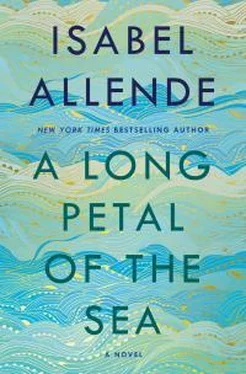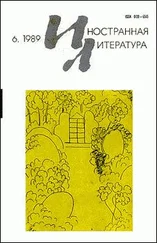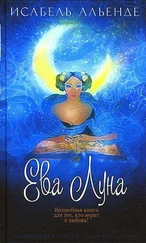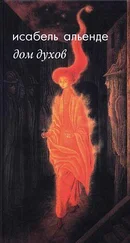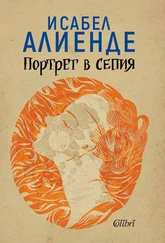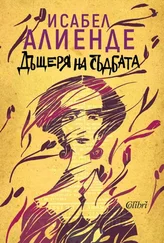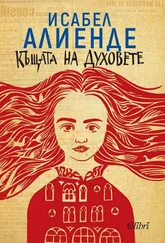Victor Dalmau often saw Pablo Neruda, who had returned from exile in 1952, from a distance in public meetings, and occasionally at the house of Senator Salvador Allende, where he would go to play chess. Victor was also invited by the poet to gatherings in his house on Isla Negra, an organic dwelling resembling a beached ship, built in a crazy fashion on top of a promontory facing the sea. This was his place of inspiration and writing. The sea of Chile, the tremendous sea, with its waiting barges, its towers of black and white foam, its coastal fishermen educated in patience, the natural, torrential, infinite sea. He lived there with Matilde, his third wife, amid a ridiculous accumulation of the objects from his collections, from dusty bottles bought at flea markets to figureheads from shipwrecks. It was there that he received dignitaries from all over the world who came to honor him and bring invitations. Local politicians, intellectuals, and journalists, but above all personal friends, among them several of the refugees from the Winnipeg, also visited the poet there. Neruda was a celebrity, translated into every language, and by then not even his worst enemies could deny the power of his verses.
What the poet most wanted was to write without interruption, cook for his friends, and to be left in peace, but that was impossible even on the rocky outcrop of Isla Negra. All kinds of people came to knock on his door and remind him that he was the voice of long-suffering peoples, as he defined himself. So it was that one day his party comrades came to demand he represent them in the presidential campaign. Salvador Allende, the ideal candidate for the Left, had already run for president three times unsuccessfully, and it was thought that he had bad luck. The poet set aside his notebooks and fountain pen with green ink and set out to tour Chile in cars, buses, and trains, meeting the people and reciting his poetry to a chorus of workers, peasants, fishermen, railway workers, miners, students, and craftsmen, who were thrilled by the sound of his voice. This experience gave new impetus to his combative poetry and led him to understand he wasn’t cut out to be a politician. As soon as he could, he withdrew and backed the candidacy of Salvador Allende. Against all odds, Allende became leader of Popular Unity, a coalition of left-wing parties. Neruda actively supported him in his campaign.
Now it was Allende’s turn to travel north and south on trains, rousing the crowds who gathered at every station to listen to his passionate speeches, in tiny villages scorched by sand and salt, and in others darkened by eternal rain. Victor Dalmau went with him on several occasions, officially as his doctor, but really as his chess partner. That was the only way the candidate could relax, since on the train he had no Western films, his other means of relieving tension.
Allende was so energetic, determined, and insomniac that no one could keep up with him, and his entourage had to rotate their shifts. Victor took on the hours late at night, when the exhausted candidate needed to clear his mind of the noise of the crowds and the sound of his own voice via a game of chess that went on sometimes until dawn or was left pending until the following night. Allende slept very little, but took advantage of ten minutes here and there to doze off wherever he was sitting, and would wake up as refreshed as if he’d just had a shower. He walked erect, chest thrust out as if ready for the fray. He talked with an actor’s voice and the eloquence of a missionary; his gestures were sparing, he was quick-witted and unshakable in his fundamental beliefs. Thanks to his lengthy political career he had come to know Chile like his own backyard, and never lost his belief that there could be a peaceful revolution, a Chilean path to socialism. Inspired by the Cuban revolution, some of his supporters maintained it was impossible to make a true revolution and escape U.S. imperialism without violence: it could only be achieved through armed struggle. For Allende, however, there was plenty of room for the revolution within the solid Chilean democracy, and he respected its constitution. Right to the end he believed it was above all a question of denouncing, explaining, proposing, and calling on others to act so that the workers could rise up and seize their destiny in their own hands. But he was also well aware of the power of his adversaries. In public he behaved with a dignity that had something pompous about it, which his enemies called arrogance, but in private he seemed simple and jovial. He always kept his word; he couldn’t imagine betrayal, and that was what eventually cost him his life.
As a very young man, Victor Dalmau had found himself caught up in the Spanish Civil War on the Republican side. He fought, worked, and went into exile because of that, adopting his side’s ideology unquestioningly. In Chile he kept the promise of refraining from political activism that had been demanded of all the Winnipeg refugees. He didn’t join any party, but his friendship with Salvador Allende gradually came to define his ideas with the same clarity as the Civil War had defined his feelings. Victor admired him in the political sphere, and also, with a few reservations, in his personal life. Allende’s image as a socialist leader was contradicted by his bourgeois habits, his expensive clothes, the refined way he surrounded himself with unique works of art he owned thanks to spontaneous gifts from other governments and every important Latin American artist: paintings, sculptures, original manuscripts, pre-Columbian artifacts. He was vulnerable to flattery and pretty women: he could spot them at a glance in a crowd, and attracted them thanks to his personality and the trappings of power. Victor was upset by these lapses, ones he only commented upon when he was alone with Roser. “How fussy you are, Victor! Allende isn’t Gandhi,” she would retort. They both voted for him, although neither really believed he would be elected. Allende himself doubted it, but in September 1970 he won more votes than any other candidate. As there was no absolute majority, Congress was meant to choose between the two candidates with the greatest number of votes. The eyes of the world were on Chile, that long narrow stain on the map that was defying convention.
Supporters of the utopian socialist revolution in democracy didn’t wait for Congress’s decision. They poured onto the streets to celebrate this long-awaited triumph. Dressed in their Sunday best, entire families, from grandparents to grandchildren, came out singing, euphoric, astonished but without the slightest hint of disorder, as if they had all agreed on some mysterious form of discipline. Victor, Roser, and Marcel mingled with the crowd waving flags and singing that the people united would never be defeated. Carme didn’t go with them, because as she said, at the age of eighty-five she wasn’t going to live long enough to get enthusiastic about anything as unpredictable as politics. In reality, by now she went out very little, devoting herself entirely to looking after Jordi Moline, who was suffering the pangs of old age and rarely wanted to leave home. He had remained young in spirit until he lost his tavern. The Winnipeg, which had become a landmark in the city, had disappeared when the whole block was razed to make way for some tall towers that Moline was convinced would be toppled by the next earthquake.
Carme, by contrast, was as healthy and energetic as ever. She had shrunk until she looked like a plucked bird, a heap of bones and skin, with little hair left and a cigarette permanently dangling from her lips. She was tireless, efficient, brusque in manner but secretly sentimental. She did all the housework and looked after Jordi as she would a backward child. The pair planned to watch the spectacle of the Left’s electoral victory on the television with a bottle of red wine and Spanish serrano ham. They saw the columns of people with banners and torches, and witnessed their fervor and optimism. “We’ve already lived this in Spain, Jordi. You weren’t there in ’36, but I can tell you it’s the same thing. I just hope it doesn’t end badly like it did over there,” was Carme’s only commentary.
Читать дальше
